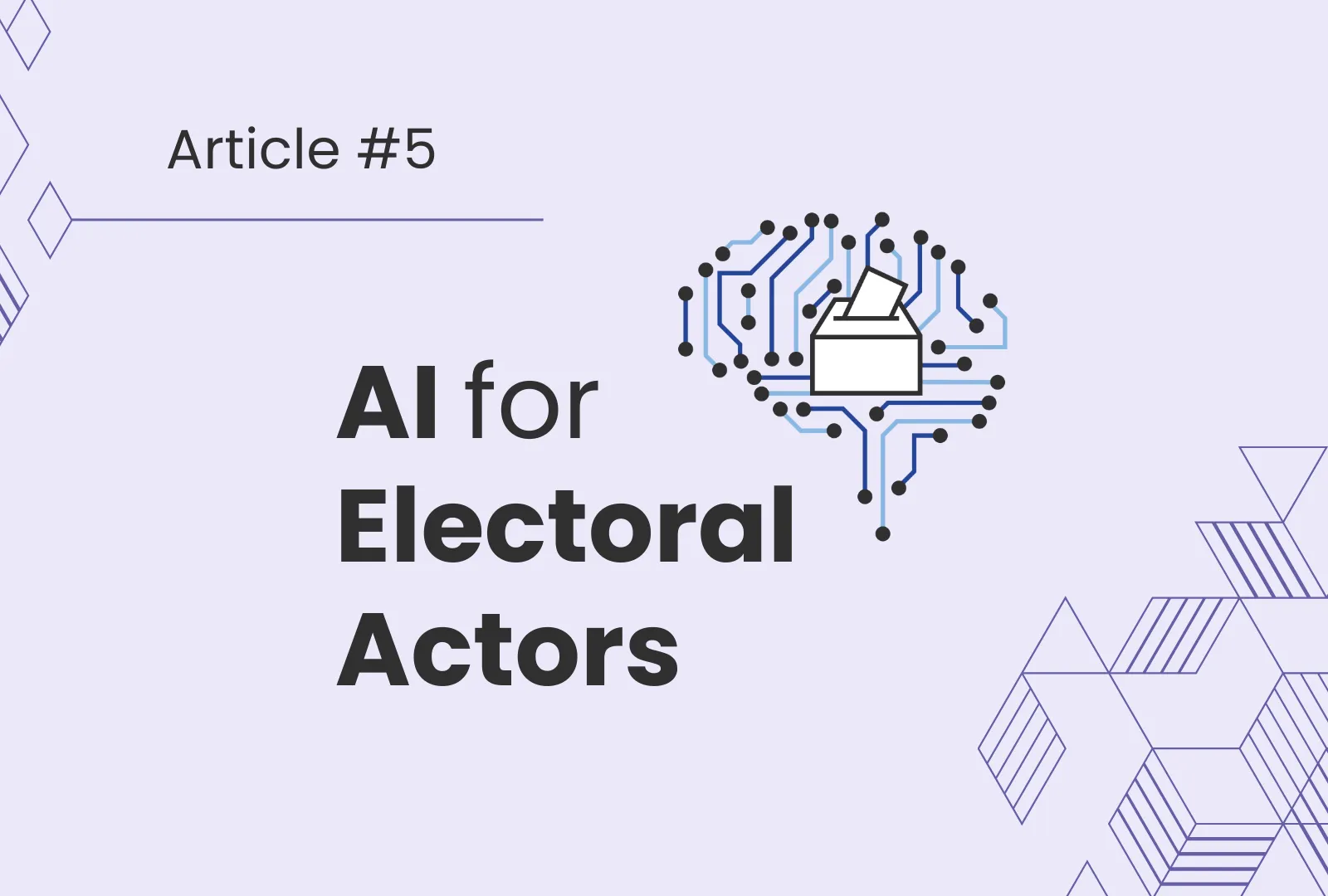Lessons on AI from Latin America to the world #5

International IDEA organised the fourth of five workshops on Artificial Intelligence (AI) for electoral actors in Panama. The workshop took place on the 20 and 21 May and gathered different stakeholders including civil society organisations, technical experts and more than 17 electoral authorities from all across Latin America. During both days, we discussed Latino American AI systems implemented in electoral processes and how these technologies may pose benefits but also pose risks to democracies and fundamental rights.
This workshop has shown that electoral authorities in LAC are very updated on the main AI discussions, showing a vast knowledge of the technical and socio-political aspects of AI policies. These are some ideas that came up during the two-day discussions hand-in-hand with electoral authorities.
The future is now: AI systems in electoral processes
AI is already impacting electoral management and democracies in the Latin American region. Cases such as the chatbots, implemented by the INE in Mexico, the facial recognition system in Colombia or the fight against disinformation that the TSE is taking in Brazil show how embedded is AI in the region.
The main challenge for the region is to make sure these AI systems do not replicate structural inequalities or authoritarianism. Conversely, AI systems should be used to improve democracies and electoral processes. In order to achieve this, Natalia Zuazo, our regional expert, enlightened us on tools to move forward: States need to develop human rights-centric standards and rules, build up based on AI international policies such as UNESCO guidelines or the Organisation of American States standards, and include a multistakeholder approach in these processes.
Disinformation in LAC: structural problems require structural solutions
During the workshop, electoral authorities agreed that the most important challenge posed by AI in electoral processes is disinformation. However, responses to the fight against disinformation remain fragmented across Latin America and the Caribbean (LAC). While some electoral authorities—such as those in Mexico and Brazil—have established direct channels with digital platforms like Meta or Google, others, including the Dominican Republic, Panama, and Bolivia, lack focal contacts.
In the absence of binding regulations, Latin American authorities need to act as a bloc, building bridges with platforms. This would enable the creation of common and unified regional standards to combat disinformation. International organisations, such as International IDEA, could serve as conveners and, through a multi-stakeholder approach, help develop strong and coordinated strategies to counter disinformation.
The region also has valuable lessons to offer the world. The Brazilian electoral authority shared how disinformation deeply affected Brazilian society, polarising citizens to the point of an attempted coup d'état. The Superior Electoral Court (TSE) responded with a robust institutional policy that includes monitoring, transparency measures, reporting mechanisms, civic education, and regulatory actions. This experience can serve as an inspiration globally.
Structural problems require structural solutions. This is how the TSE addressed this major challenge: by establishing working groups with all stakeholders, educating citizens, developing mechanisms for transparency and reporting, and implementing regulatory measures.
Pillar # 3 Legislation and Regulation
The discussions during the workshop highlighted regional concerns and potential solutions through regulatory means. As mentioned, Latin American countries should align with international initiatives on AI regulation, such as UNESCO guidelines or the Organisation of American States standards on AI and data governance. There are two key reasons for this: (a) AI systems are typically implemented globally, following common technical standards; and (b) countries should promote coherent and systematic AI governance to avoid fragmentation and/or duplication of regulatory frameworks.
Nevertheless, any regulation must be adapted to regional and national contexts. AI regulatory frameworks should not be built from scratch but should take into account existing legal measures that already apply to AI systems. Understanding the relevant regulatory landscape—such as anti-discrimination laws, electoral legislation, data protection laws, and content moderation laws—is essential for developing national legislative initiatives. This approach is both realistic and desirable. AI regulation should recognize what can be leveraged from existing laws and identify legal gaps that must be addressed to build a coherent and applicable framework.
Finally, a national regulatory mechanism should involve all relevant stakeholders. In Latin America, the legacy of authoritarianism and low levels of public trust call for whole-of-society agreements on critical issues such as AI regulation. Worse than having poor AI regulation is having dead-law that is well-intentioned but ineffective or poorly implemented. A multi-stakeholder approach can help fill legal gaps while also building national consensus on how societies should move forward with AI regulatory frameworks.
The road ahead: fostering dialogue in LAC on AI and Elections
International IDEA will continue advancing this important discussion with electoral authorities not only in LAC, but worldwide. Although different regions face distinct challenges, International IDEA’s global approach can facilitate meaningful exchanges, not only in the traditional North-South direction, but also through a valuable South-to-North learning processes. The experience of this workshop has shown that the region has much to contribute.
We are very much looking forward to holding the next meeting with electoral authorities in LAC. These topics are urgent and highly dynamic, and sustained engagement with all stakeholders is essential to continue building capacities.
In the upcoming final article of this article series, we will apply what we have learned from the concluding workshop in Senegal to consider how the information landscape surrounding elections is impacted by AI. The article will investigate how EMBs in Africa tackle AI powered online disinformation and content curation systems when they come to threaten electoral integrity.
Catch up on the article series so far by reading the first article to get the full picture of a democratic AI foundation, the second article on AI Literacy and the workshop in Kuala Lumpur, the third article on AI ethics and the workshop in Tirana, and the fourth article on AI in electoral management and the workshop in Johannesburg. Also, make sure to read the bonus article on the EU AI Act and AI literacy.




